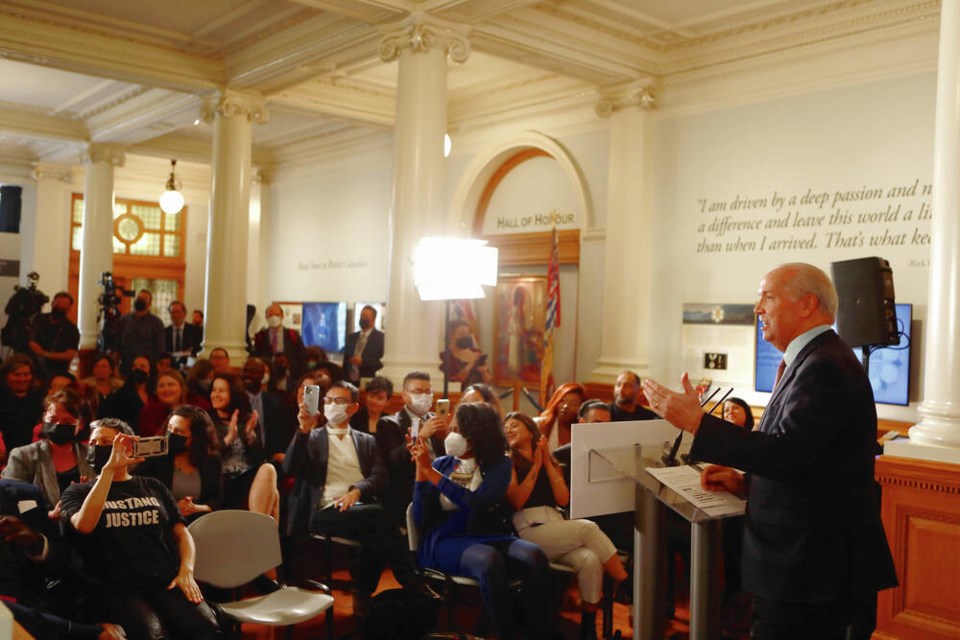Premier John Horgan said proposed legislation he supported to hold youth involuntarily in hospital after they’ve overdosed was based on pleas from families and experts, but after hearing from more people, he decided it “wouldn’t be the best way forward.”
On Friday, B.C. ditched a controversial plan to force youth to undergo treatment for up to seven days after an overdose, and will instead develop a new strategy with First Nations groups.
Mental Health and Addictions Minister Sheila Malcolmson said concerns about the potential negative impact of legislation known as Bill 22, put forward in July 2020, led the province to consult further with First Nations, families, health-care experts and drug users. That highlighted concerns about trauma associated with holding youth against their will, Indigenous youth especially.
Indigenous groups already reeling from the discovery of unmarked graves at residential schools and racism in the health-care system are wary of further traumatizing youth who might be detained involuntarily, Malcolmson said. They have asked the province for a different approach, developed with their input.
“Did I want to see the legislation come forward — yes, I did,” Horgan said during a Monday news conference.
Horgan had cited the Green Party’s unwillingness to support the bill as one reason he ended a power-sharing agreement with the Greens and called a snap election for Oct. 24, 2020.
Horgan said that after meeting with parents who lost children to the toxic drug supply in B.C., who “were desperate for some action by government that would show that their child’s life was not lost in vain,” he felt “very strongly” about having legislation to hold youth who have overdosed.
Holding a youth in hospital up to seven days after an overdose was seen as a way to give the youth time to stabilize and clinicians time to oversee detox, to develop a treatment or discharge plan, and to contact family and guardians.
The proposed bill was created after youth who refused to remain in hospital after an overdose died later on the streets without their families even knowing they were discharged.
Following the 2020 election, in which the NDP won a majority, the premier said the “paused” legislation would be re-introduced after further consultation.
That consultation revealed “significant resistance,” Horgan said. “I am absolutely ready to step away from my personal view on a piece of legislation to make sure that it is more reflective of the views of the broader community.”
“I was given evidence that that wouldn’t be the best way forward,” said Horgan. “My mom raised me to look at the new evidence and take your direction from that — don’t hold fast to yesterday’s ideas.”
Rachel Staples, whose son Elliot Eurchuk died of an overdose in his bedroom in April 2018, said she understands why First Nations would be especially fearful of having youth detained in hospital. But she noted that youth whose brains are “doused in opioids” or in shock following an overdose can’t have the capacity to make reasonable decisions.
Staples said involuntary treatment needs to be an option, and she was desperate for that option.
— with files from The Canadian Press
